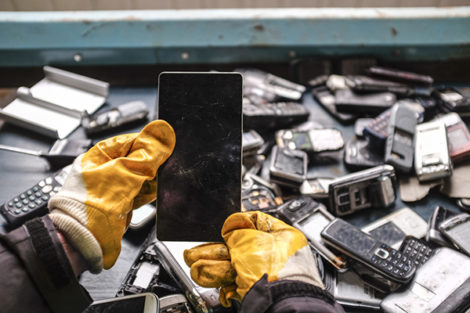How to correctly dispose unwanted electronics

Before opting to recycle old machines and devices, consider repairing or donating them. Image: IStock/baranozdemir.
The average European generates 16.2 kilograms of e-waste (or discarded electronics and electrical items) per year, according to the Global E-waste Monitor 2020 by the Global E-waste Statistics Partnership, which was drafted with the United Nations University.
With all the accidents that befall smartphones and tablets, as well as the never-ending need for up-to-date computers and household appliances, our societies buy and throw away high-tech items at an astonishing rate.
Once discarded, this e-waste, as it is called, becomes a major environmental hazard. Here are some tips on how to correctly recycle unwanted electronics.
How about not buying items in the first place?
Before they become waste, electrical items and electronics have to be selected and purchased. Ahead of these transactions, one can seriously wonder about their need for these items.
If you really cannot do without a new computer or a new phone, for example, consider opting to purchase a refurbished one.
At the same time, if the device being replaced is still functional, either consider selling it or giving it away to a needy friend or a charity that will sell it in your stead.
What about repairing the one you got?
Repairing household machines can considerably delay their planned obsolescence. In many cities, there are plenty of repair services that will put broken devices back on their feet for another few years.
Alternatively, you might like to consider doing the work themselves. Even if you are not particularly technically minded, there is plenty of help at hand from video tutorials on the internet and burgeoning networks of repair cafes, where people come together to share information and expertise.
As a last resort, charities and recycling businesses will often repair items before they consider recycling them for scrap.
Collection points
If there is no hope of bringing your device or machine back to life, you should never opt to put it in the trash. No matter how big or small it is, whether it be a USB device or a washing machine, it is vitally important to take e-waste to an official collection point where it will be properly recycled.
Local authorities run collection points that are usually relatively convenient, especially for people who live in urban areas. Many supermarkets are now also offering a range of collection services for small electronic items, as well as batteries and light bulbs.
For bigger items, like white goods, consider purchasing your new machine from a supplier who will take the old one away and make sure that it is disposed of correctly. CC
RELATED STORIES:
E-waste a major challenge for the planet